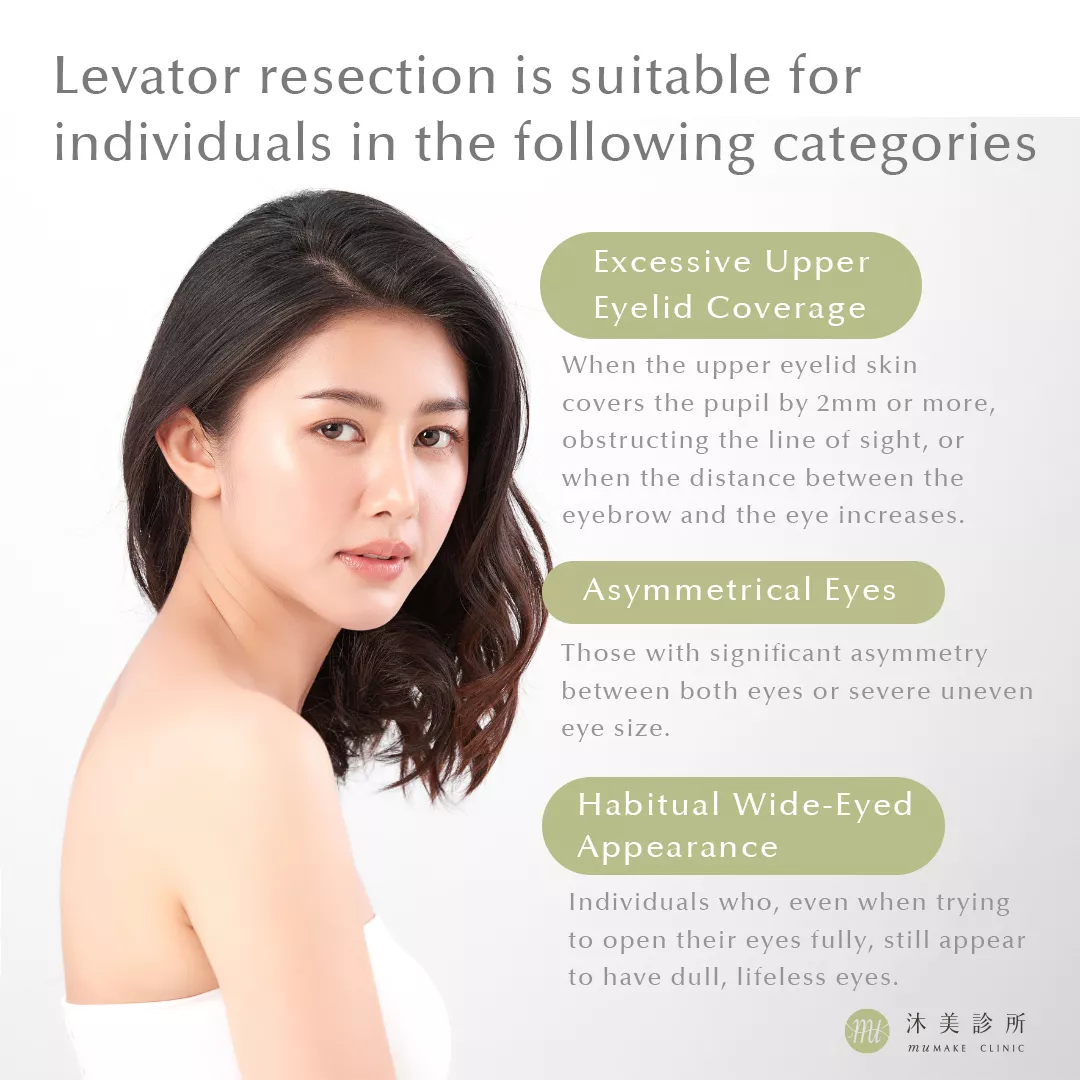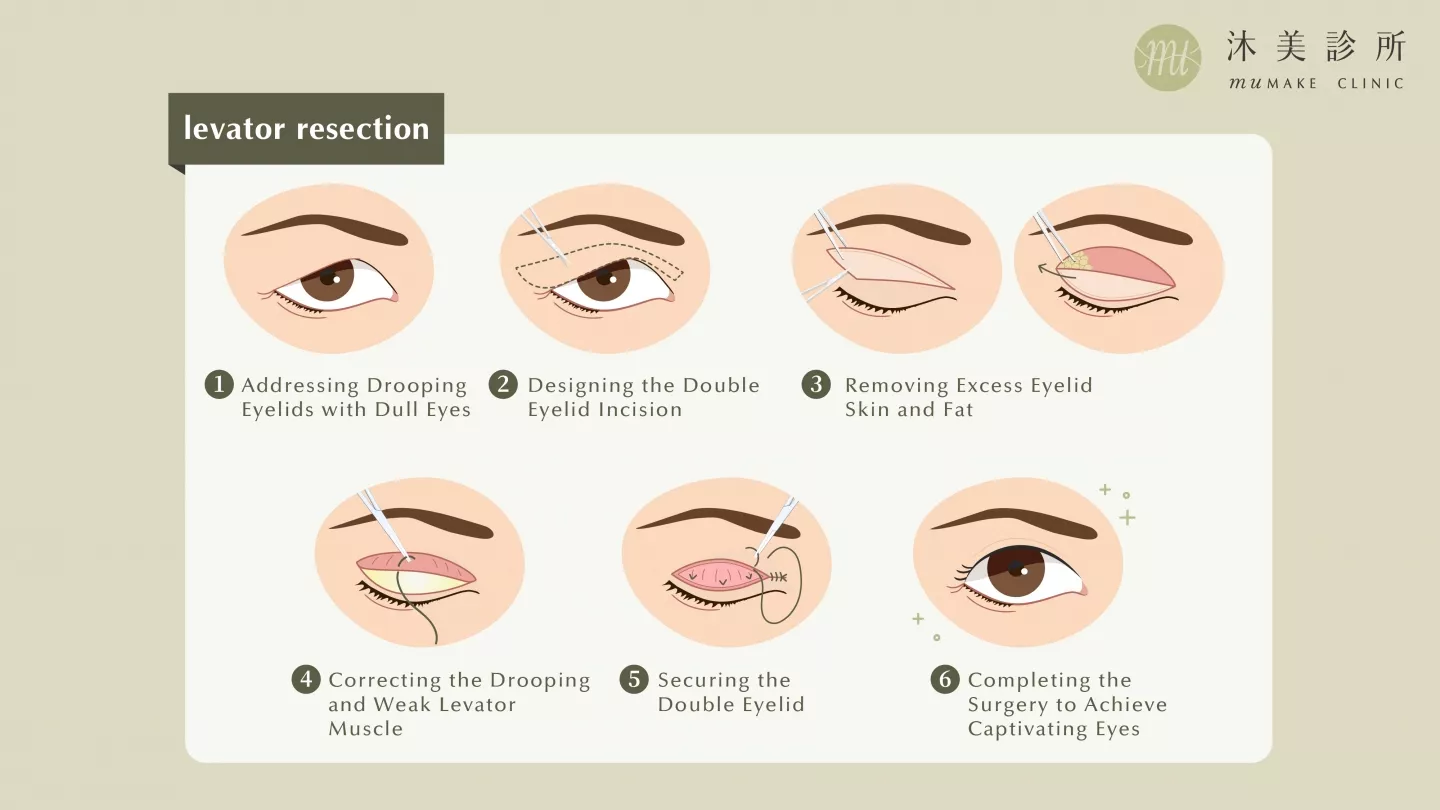Levator Resection is a highly challenging and skill-demanding plastic surgery procedure that requires experienced surgeons to master. It involves the assessment of numerous details simultaneously, including the patient's levator muscle strength, skin elasticity, eyelid fold tissues, and eyelid conditions, necessitating a "systematic" fine-tuning of overall muscle tension. As such, it is a highly customized procedure that tests the surgeon's skills and expertise.
Causes of Levator Muscle Weakness
- Congenital levator muscle weakness
- Prolonged use of false eyelashes, eyelid tape, or damage to the levator muscle
- Muscle weakness due to aging
Who Is Suitable for levator resection?

How Is levator resection Performed?

Witness
※The case photos in this text are clinic's pre- and post-operative photos, used for treatment explanation or supplementary educational information. They are for reference only. According to the announcement of the Ministry of Health and Welfare, the case records obtained patient consent and are not medical advertisements.



Q:Is the surgery very risky?
A:Every surgical procedure carries its own set of risks, so it is recommended to have thorough consultations with the surgeon before the surgery.
Q:Can I have levator resection along with double eyelid surgery?
A:Many individuals with congenital "bubble eyes" combined with levator muscle weakness opt for a combination surgery of double eyelid and levator muscle correction. This procedure not only raises the eyelids but also reduces the effort required by the levator muscle, resulting in better outcomes. However, the suitability of this approach depends on individual circumstances.
Q:How can I determine if I have levator muscle weakness?
A:The simplest way is to check whether your upper eyelid skin covers more than one-third of your pupil. If it does, an evaluation for levator resection may be necessary.
Q:What issues might I encounter during the recovery period?
A:Recovery from levator resection is relatively lengthy, taking around 1-3 months. During the recovery period, you will need to gradually adapt to the new muscle tension, which can occasionally lead to a slight tight or swollen feeling around the eyes. These sensations are considered normal.




 Booking Now
Booking Now  Messenger
Messenger  LINE
LINE 


